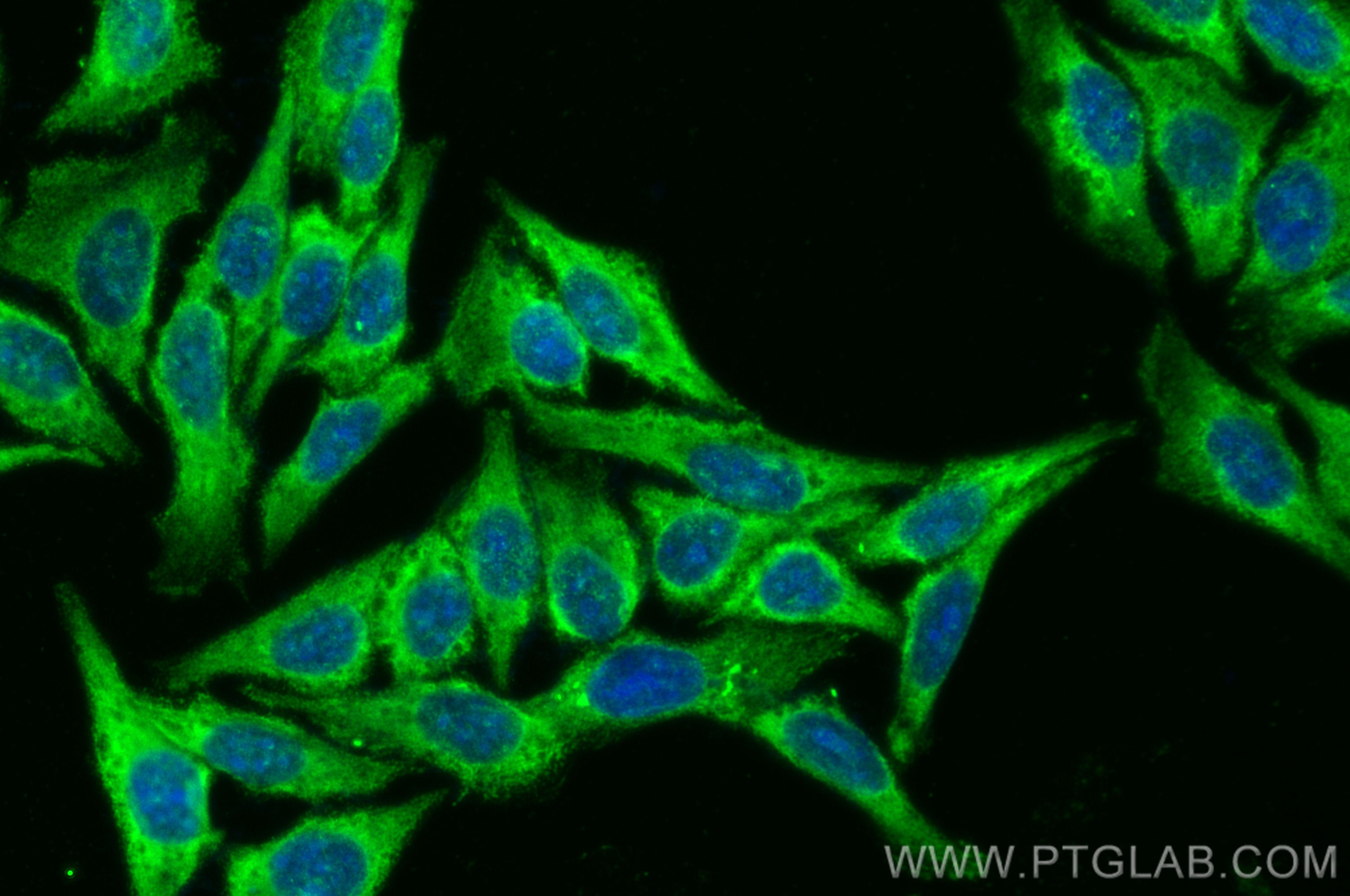Validation Data Gallery
Filter:
Tested Applications
| Positive IF/ICC detected in | HepG2 cells |
Recommended dilution
| Application | Dilution |
|---|---|
| Immunofluorescence (IF)/ICC | IF/ICC : 1:50-1:500 |
| It is recommended that this reagent should be titrated in each testing system to obtain optimal results. | |
| Sample-dependent, Check data in validation data gallery. | |
Product Information
CL488-68341 targets CCS in IF/ICC applications and shows reactivity with Human, mouse, rat samples.
| Tested Reactivity | Human, mouse, rat |
| Host / Isotype | Mouse / IgG2a |
| Class | Monoclonal |
| Type | Antibody |
| Immunogen | CCS fusion protein Ag18860 相同性解析による交差性が予測される生物種 |
| Full Name | copper chaperone for superoxide dismutase |
| Calculated molecular weight | 274 aa, 29 kDa |
| Observed molecular weight | 32 kDa |
| GenBank accession number | BC105016 |
| Gene Symbol | CCS |
| Gene ID (NCBI) | 9973 |
| RRID | AB_3084476 |
| Conjugate | CoraLite® Plus 488 Fluorescent Dye |
| Excitation/Emission maxima wavelengths | 493 nm / 522 nm |
| Form | Liquid |
| Purification Method | Protein A purification |
| UNIPROT ID | O14618 |
| Storage Buffer | PBS with 50% glycerol, 0.05% Proclin300, 0.5% BSA , pH 7.3 |
| Storage Conditions | Store at -20°C. Avoid exposure to light. Stable for one year after shipment. Aliquoting is unnecessary for -20oC storage. |
Background Information
Copper chaperone for superoxide dismutase (CCS) is a soluble factor that converts copper into copper-zinc superoxide dismutase ( SOD1 ). CCS and SOD1 interact directly in vivo and in vitro, and this interaction is mediated by homologous domains in each protein. CCS not only interacts with wild-type SOD1 but also interacts with SOD1 containing common missense mutations, resulting in FALS.
Protocols
| Product Specific Protocols | |
|---|---|
| IF protocol for CL Plus 488 CCS antibody CL488-68341 | Download protocol |
| Standard Protocols | |
|---|---|
| Click here to view our Standard Protocols |
